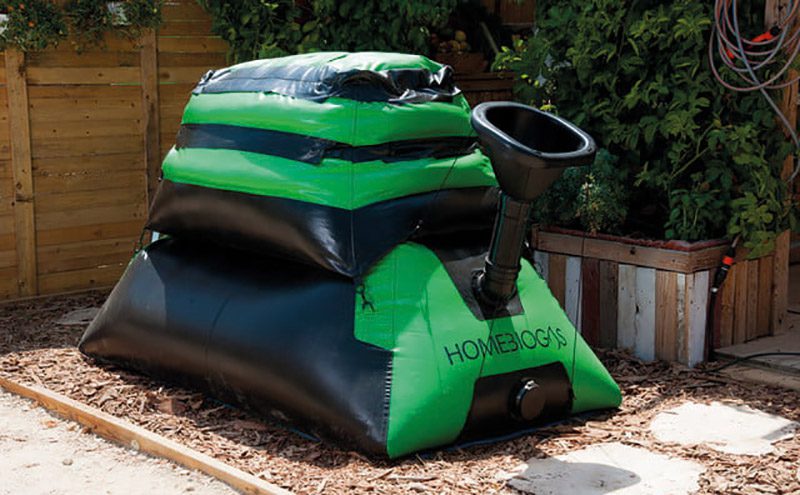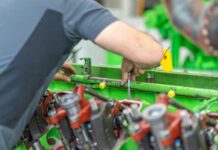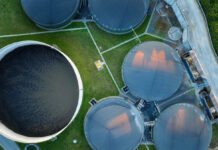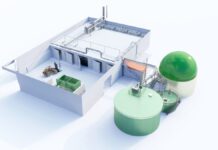Tel Aviv-based kickstarter firm HomeBiogas has come up with an improved version of its domestic-scale biodigester, originally launched in 2015. Like its predecessor, HomeBiogas 2.0 is a self-assembled biogas system that can take food waste and livestock manure and turn it into usable gas and liquid fertilizer. It was announced in late October.
The original product was presented as a radical departure from comparable biogas systems already available, which tend to be large and bulky, limited to certain areas or for commercial use only. Improvements apparent with the new appliance include 50% better efficiency, easier install and the addition of a home biogas stovetop cooker.
Equipped with a water-resistant outer layer, the HomeBiogas 2.0 appliance is fed with equal parts waste and water. Anaerobic digestion breaks down the waste and the resultant gas is piped through to a kitchen stove – using a specially-provided pipe. To install, the firm says you just fill the digester with water, mount the gas container with the sandbags HomeBiogas supplies, and the machine is ready to use.
Inside the device a gas tank gradually inflates as biogas is produced. A patented mechanical pressure mechanism is used to deliver gas at a uniform rate to the stovetop, says the firm.
Liquid fertilizer flows from a pouring sleeve, and the firm suggests this can be used on a vegetable patch, flower beds, fruit trees or a hydroponic bed, or it can be used as a water and nitrogen additive for a compost heap, to assist the composting process.
The firm says the appliance produces no noticeable odours – it includes an inlet cover, which also seals it off from the outside world. There is also a filter installed to get rid of odours like H2S and ensure the product piped into the kitchen is clean, safe and odourless.
The HomeBiogas 2.0 appliance is being offered for a retail price of $790, not including the biogas stove. While it is aimed at green consumers, HomeBiogas says it might also serve an urgent need in developing countries, in regions where there is little access to clean energy and waste removal services. In many of these areas a common practice is to cook with charcoal or wood stoves, which cause indoor air pollution and contribute to deforestation. HomeBiogas offers a clean alternative.








